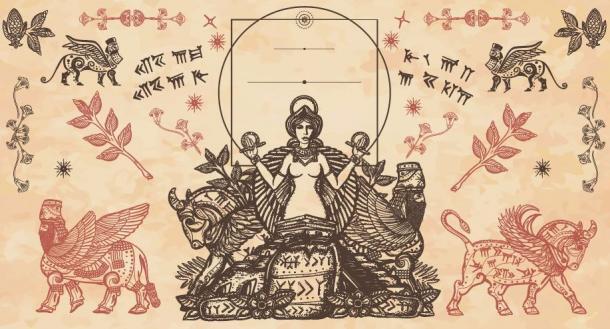The origins of hot cross buns can be traced back to ancient Pagan rituals. The cross on the bun was originally a symbol of the four quarters of the moon, which was worshipped by Pagans as a symbol of the cycles of life and rebirth.
When Christianity spread, the Church adopted the tradition of eating hot cross buns during Easter, but with a new meaning. The cross on the bun now represents the crucifixion of Jesus, making it a symbol of his sacrifice and resurrection.
So, the next time you bite into a hot cross bun, remember its ancient roots and the journey it has taken from Pagan ritual to Christian tradition.
In conclusion, Easter may be celebrated as a Christian holiday, but its origins are deeply rooted in Pagan traditions and beliefs. The Easter bunny, eggs, and hot cross buns all have their origins in ancient Pagan rituals, symbolizing themes of rebirth, fertility, and renewal.
Understanding the Pagan roots of Easter adds a new layer of meaning to the holiday, connecting us to the ancient traditions and beliefs of our ancestors. So, this Easter, as you hunt for eggs and enjoy hot cross buns, take a moment to reflect on the hidden truths behind these symbols and the rich history they carry.
Happy Easter!
The symbol of the cross has long been associated with the crucifixion of Jesus, a central event in Christian faith. However, some scholars suggest that the origins of the hot cross bun, a popular Easter treat, can be traced back to pagan rituals honoring the goddess Eostre. In these ancient traditions, bread marked with a cross symbolized the four seasons or phases of the moon.
As Christianity spread and evolved, it absorbed and reinterpreted many pagan symbols and practices, including the hot cross bun. Today, Easter is a holiday that blends both Christian and pagan elements, with customs rooted in ancient traditions celebrating spring, renewal, and fertility. This rich and diverse heritage offers a deeper appreciation of the holiday’s symbolism and history.
Whether you believe in a Pagan Easter or not, understanding the pagan origins of Easter can provide insight into the holiday’s cultural significance. Despite its Christian associations, Easter retains elements of its pagan past, reminding us of the interconnectedness of different belief systems and traditions.
In conclusion, Easter is a complex holiday with deep roots in both Christian and pagan traditions. By exploring the ancient origins of Easter customs, we can gain a greater understanding of the holiday’s symbolism and significance. Whether you celebrate Easter as a religious observance or a cultural tradition, the blend of Christian and pagan influences makes it a truly unique and meaningful time of year.

